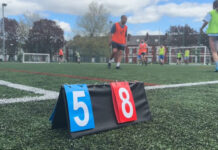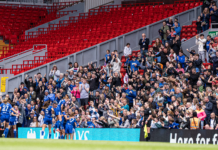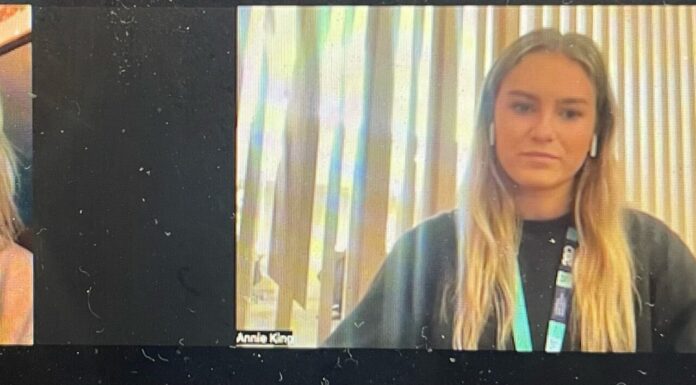The Sheldon Report into sexual abuse of junior football players has found that the Football Association “did not go far enough to keep children safe”.
The long-awaited independent report into the abuse of junior football players between 1970 and 2005 was published yesterday.
The report also found that the Football Association was “too slow” to introduce safeguarding measures to protect children between October 1995 and May 2000.
The Sheldon Report
The 710-page review led by Clive Sheldon QC was commissioned by the FA in 2016. According to the BBC the 710-page report found:
- Between the summer of 1995 and May 2000, and following high-profile child abuse convictions, the FA “could and should have done more to keep children safe”.
- Football’s governing body did not put in place sufficient child protection measures at that time and “did not do enough” to keep children safe. “Child protection was not regarded as an urgent priority,” the report found.
- The FA did not ban Barry Bennell and Bob Higgins, two of the most notorious abusers from football.
- At least 240 suspects and 692 survivors were identified. However, the actual level of abuse was likely to be higher because relatively few people reported abuse.
- Where abuse was reported to clubs, the responses of people in authority were “rarely competent or appropriate”.
- The report also found that while several offenders knew each other no evidence was found that a paedophile ring existed in football.
The report has made 13 recommendations including having qualified safeguarding officers at professional football clubs; for the FA to appoint a children’s safeguarding champion and for the association to widen sport checks at amateur clubs and publish an annual safeguarding report.
The FA said it would implement all 13 actions.
Reaction to Sheldon Report
Mark Bullingham, Chief Executive of the Football Association apologised on behalf of the FA, as well as the English game as a whole. He said the report was “a very important piece of work” made possible by survivors bravely coming forward.
He added: “Today is a dark day for the beautiful game.”
Chris Hurlston, a specialist lawyer at Irwin Mitchell who represent survivors of abuse, said: “The long-awaited report makes for truly shocking reading. It contains a number of extremely worrying findings of how a number of young and aspiring footballers were not protected and some people abused their position of trust to carry out terrible crimes.
“The fundamental priority now has to be that lessons are learned to ensure such widespread abuse isn’t allowed to manifest itself again and that those affected are able to access the ongoing support and counselling they require as they attempt to come to terms with their experience.
“People affected by such issues deserve to have their voices heard”.
Club reaction
Seven of the eight clubs involved have released statements, with Crewe Alexandra being the only club who have declined to comment.
Manchester City, Chelsea and Southampton have also commissioned internal reviews into reports of abuse within their youth set up.
Other clubs involved are Aston Villa, Newcastle United, Peterborough and Stoke City.
Former Crewe Alexandra manager Dario Gradi has been banned from football indefinitely. The Sheldon Report concluded that Gradi, suspended since 2016, “could potentially cause or pose a risk of harm to children”.
The report also found that Gradi “should have done more” to investigate concerns expressed about the serial abuser Barry Bennell but was not involved in a cover-up. The review also found that Gradi did not act inappropriately with any players.
The Offside Trust have requested to the Cabinet Office that Gradi’s MBE be stripped. Gradi was awarded an MBE in 1998 for services to football.
Dario Gradi was awarded the MBE in 1998 for services to football.
The FA yesterday confirmed that he has been banned from football since 2016 (and indefinitely) for safeguarding issues.
We're writing to Cabinet Office to request forfeiture of the MBE.https://t.co/QpFzBobuN9
— Offside Trust (www.offsidetrust.com) (@OffsideTrust) March 18, 2021
The Offside Trust was set up by survivors for survivors of child sexual abuse in sport.
In a ten point statement, The Offside Trust said: “We are deeply disappointed that the opportunity to create a world-class standard for child protection and safeguarding in sport has been missed.
“The recommendations are blindingly obvious. The FA should have immediately made these most basic of changes without waiting for a 700 page report. The fact that they didn’t speaks volumes about how far from reality the FA has been in this process.”
Where did it all start?
In 2016, Andy Woodward waived his right to anonymity to talk about being sexually abused by Barry Bennell at Crewe Alexandra from the age of 11 to 15. Following Woodward, many others contacted the police, which included former England and Tottenham Hotspur player Paul Stewart.
Children’s charity NSPCC and the FA set up a hotline that was dedicated to footballers who had experienced sexual abuse. In the first week of the hotline, 860 calls were received.
Following investigations, the FA set up an independent inquiry into child sex abuse in football, led by Clive Sheldon QC.
Offenders such as Barry Bennell, Eddie Heath and Bob Higgins are serving time behind bars for 20 plus years for sexual abuse of children.

















